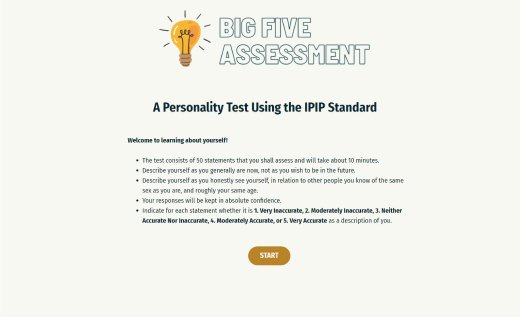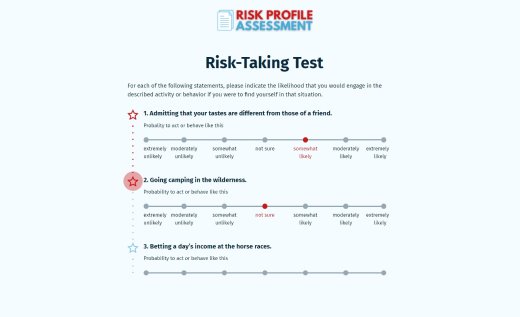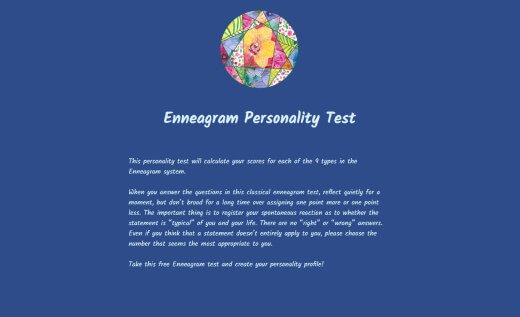PVQ Test - Portrait Values Questionnaire
The Portrait Values Questionnaire (PVQ) is based on the concept of portrait values developed by social psychologist Shalom Schwartz in the late 80s. This PVQ was designed in 2001 and portrait values are taken from optimistminds.com/pvq/. The respondent is asked to compare themself with short descriptions of 40 different people and answer how similar they think they are to the portrait provided ranging from “very much like me” to “not like me at all.”
PVQ is used successfully to screen personal values both in personal and business environments. HR specialists employ the tests to get insights into employees’ defining goals and to better motivate staff in an increasingly international workspace.
The Portrait Values Questionnaire is created in the AidaForm online test creator and the result — manifestation of the portrait values — is calculated immediately and presented to you on the final page. Take the PVQ for free to get a deeper understanding of your personal values, as well as inner motives and resources.
Add the PVQ to your AidaForm Expert account and use it in your Human Resources development processes.
Personal Values Test Explained
Simply defined, personal values are things that are especially important to us. They can be friends, health, family, traditions, etc. We can also interpret values as objectives that we aim to accomplish in the long term. Personal values are often age-specific and they are subject to change and develop over time.
The 10 core values featured in this Personal Values Test are:
- Universalism: protecting the well-being of people and the environment constitute the essence and the core motivation that drives their behavior.
- Benevolence: this includes safeguarding and aiding people with whom one is in close contact.
- Tradition: keeping to the historically established customs, norms of behavior, attitudes, beliefs, etc., that are passed on from generation to generation.
- Conformity: means a conscious limitation of one’s desires, emotions and impulsive actions that can harm or hurt other people.
- Safety: the motivational background is the need for a sense of harmony and security in society, oneself and others.
- Power: it implies the right and ability to have power over other people or resources.
- Achievement: involves the positive result of work and activities and the success associated with the evaluation of these results as outstanding.
- Hedonism: the main motivational goal is to enjoy life’s goals and events.
- Stimulation: involves the search for excitement and vivid sensations in life.
- Self-direction: this includes establishing and developing one’s own life path.
Portraits of the test participants are presented to the participants where the characters have different values as a leading life principle. For example, ‘He likes to be creative in his ways’ or ‘He likes doing things the way they value.’
One more remark: there are “male” and “female” versions of the questionnaire. The reason for this is the fact that you will be asked how much you identify with the person described in each individual question. So the assumption when the questionnaire was created was that a male might have difficulty identifying as a female or vice versa. We think that in 2021 we are beyond this stage already and we therefore use the female version only!
If you would like to learn more about PVQ, see optimistminds.com/pvq/ where you find a detailed overview of what the test is all about.


